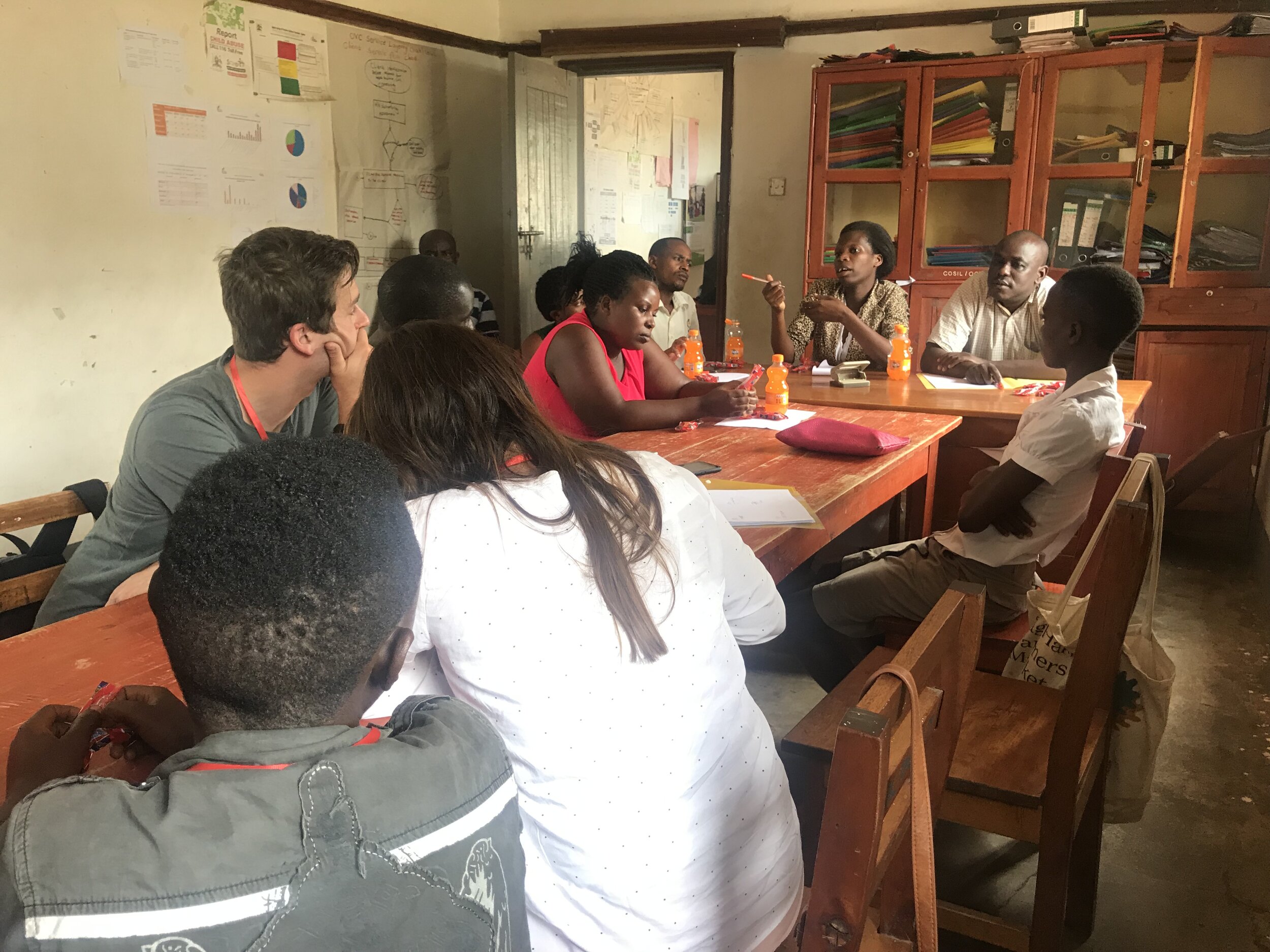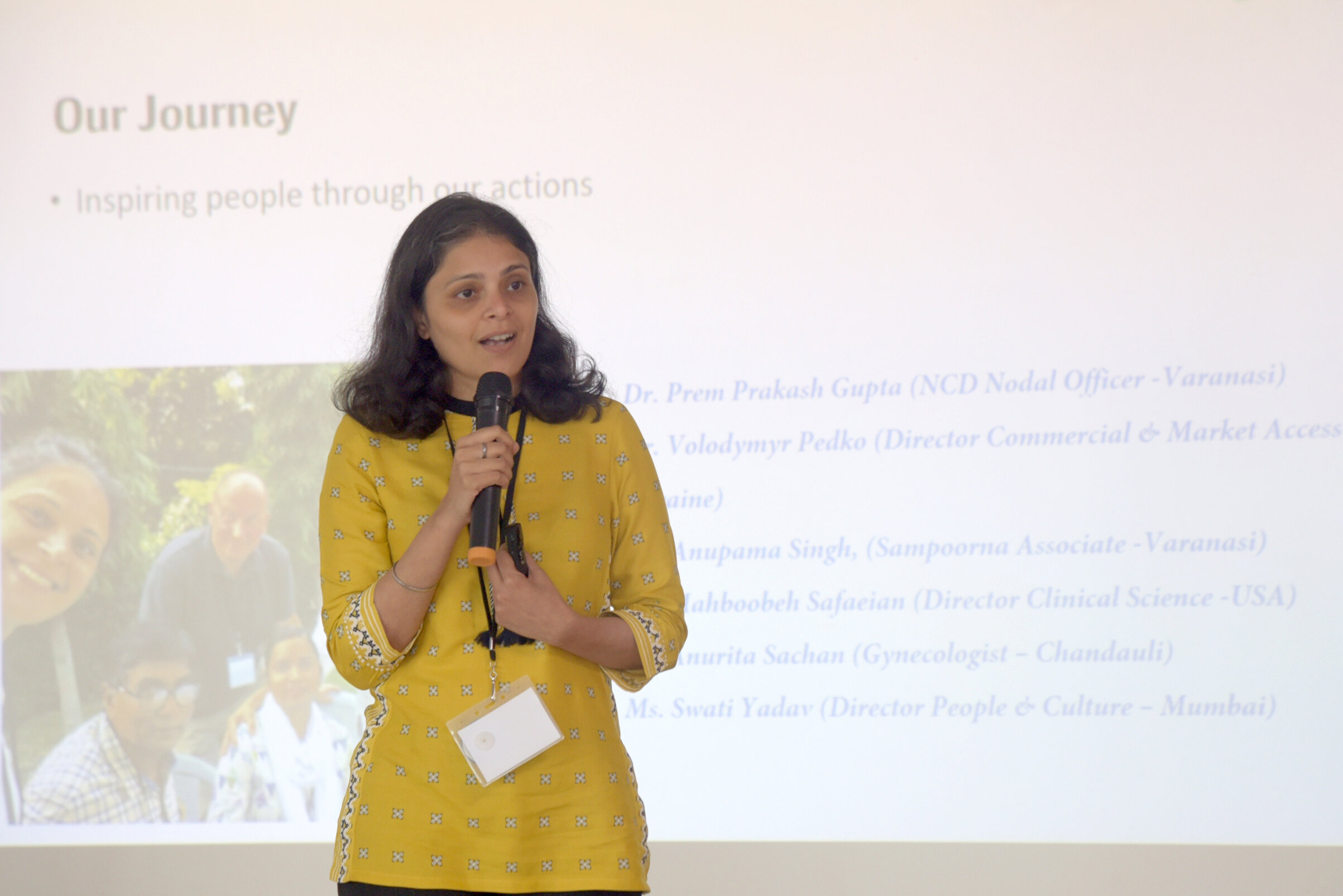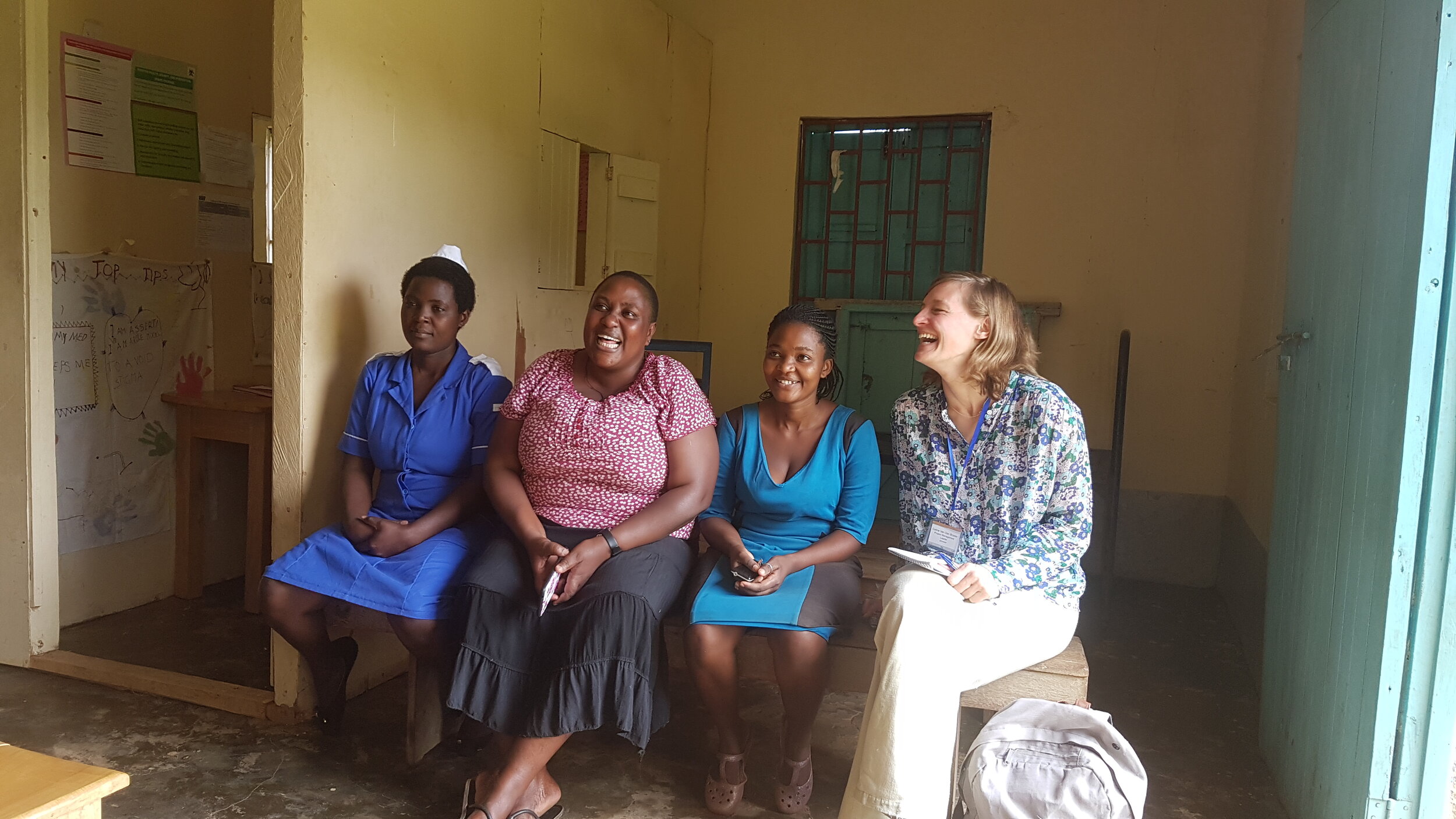NEW PROGRAMMES
2019 was an exciting year as we launched two new leadership programmes in two countries.
Meeting with health facility staff in Kamwenge district, Uganda.
Global Health Leadership Challenge: This programme brings together adolescent peer leaders, healthcare workers, Baylor Children’s Foundation, Uganda staff, and leaders from the Janssen Pharmaceutical Companies of Johnson & Johnson to develop their leadership skills, and learn from each other to strengthen existing efforts to improve adolescent health outcomes in Western Uganda. By leveraging leaders on the ground to creatively engage communities and improve adolescent friendly health services across two districts, the programme aims to improve HIV and sexual and reproductive health outcomes for young people through the small scale piloting of youth-led innovation projects. So far, 48 leaders have received leadership training from the faculty Aesara Partners, and 4 innovations have been piloted reaching over 1100 adolescents with improved knowledge of and access to sexual and reproductive health services, at just £1.62 spent per young person reached.
Presenting to stakeholders in Varanasi during Cohort 1 of NJIA India.
NJIA India: Inspired by the success of our collaboration in Tanzania, Pepal has again partnered with F. Hoffman-La Roche on a programme to strengthen leadership and governance to improve cervical cancer prevention in Uttar Pradesh state, India. This programme brings together Roche leaders, Indian healthcare leaders, and NGO partners to build agile leadership and innovation skills, and generate innovative, resource-efficient approaches to cervical cancer prevention in three districts of Varanasi division. More than 4000 community members and health workers have been sensitised on cervical cancer prevention as part of the first cohort’s innovation pilots.
SOCIAL IMPACT
In 2019, Pepal reached over 13,000 individuals through 21 innovations piloted through our leadership workshops. These projects ranged from teacher training on adolescent sexual and reproductive health, community education projects, and outreach campaigns to provide family planning, HIV and STI testing, and cervical cancer screenings in underserved communities in Tanzania, Uganda, and India. £7,700 was invested in these innovations, translating to an estimated £0.59 spent per beneficiary reached.
This year Pepal also worked on sharpening our organisational tools for monitoring and evaluation, in order to better and capture and communicate the impact of the Pepal approach.
Raising awareness of cervical cancer with community health workers in Varanasi division, India.
LEADERSHIP GROWTH
Pepal delivered 5 highly ranked leadership development workshops in 3 countries in 2019, hosting a total of 141 participants from 17 countries. The workshops focused on developing agile leadership skills, greater cultural inclusivity, and strengthening growth mindsets in leaders from across the public, private, and NGO sector. In their own words, participants shared:
“I’ve learnt that when I truly stay close to myself, I should and can be confident of my own skills and make a difference” – Janssen leader, Global Health Leadership Challenge, Cohort 2
“Fall in love with the process, not the idea” – Roche leader, NJIA Tanzania, Cohort 9
Participants in the Global Health Leadership Challenge visiting a facility in Rwenzori region, Uganda.
“This programme truly is transformative and feeds directly into Roche’s mission”- Roche leader, NJIA Tanzania, Cohort 7
“Incredible agility experience. Speed of shaping teams. Getting very good results under continuous time pressure. Highlight: Exposure to very different culture and working effectively in a VUCA environment = Absolutely mind-changing.” – Roche leader, NJIA India, Cohort 1
“[As a result of participating in NJIA] I will open more space to my subordinates so they feel more engaged and empowered” – National leader, NJIA India Cohort 1
“[As a result of participating in NJIA] I will be a role model wherever I go” – National leader, NJIA Tanzania Cohort 7
“[This programme] helps to build thinking capacity, to change the attitude of health workers, and helps people realise the strength in themselves and believe they can make it” – National leader, Global Health Leadership Challenge, Cohort 1
“My mindset is the greatest weapon that I have to surpass any challenge in life” – National leader, Global Health Leadership Challenge, Cohort 1
An NJIA team taking a break during their field visits in Kagera, Tanzania.






